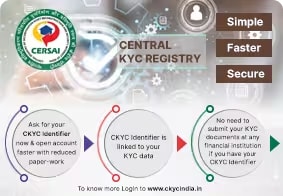Zero Charges on 28 Commonly Used Savings Account Services
- About Us
- MD & CEO letter about the bank
- MD & CEO
- Our History
- Letter to Shareholders on the 1st Annual Report after Merger
- Letter to Shareholders on the 2nd Annual Report after Merger
- Letter to Shareholders on the 3rd Annual Report after Merger
- Letter to Shareholders on the 4th Annual Report after Merger
- Board of Directors
- Awards & Accolades
- News Room
- Investors
- Careers
- ESG
-
Customer care hotlineCall 1800 10 888
-
As per amendment in the Income Tax Rules, PAN or Aadhaar are to be mandatorily quoted for cash deposit or withdrawal aggregating to Rupees twenty lakhs or more in a FY. Please update your PAN or Aadhaar. Kindly reach out to the Bank’s contact center on 1800 10 888 or visit the nearest IDFC FIRST Bank branch for further queries.
-
-
FinFIRST Blogs
Is it a good time for NRI Investments in India in 2023? Or should NRIs be cautious, given the global uncertainties? If you check how the Indian markets behaved in 2022, there is enough evidence to feel safe about any upcoming Investment plans in India. Unlike the uncertain beginning of 2022, the second half was a different story, with Foreign Portfolio Investors taking the net investment to almost Rs 1 lakh crore. Alongside, Investments by domestic players – both retail and institutional – ensured that benchmark indices remained stable.
Analysts now say foreign investments in India will rebound this year (2023-24) and keep both the Nifty and the Sensex steady on their forward momentum. So yes, the current economic environment makes immense sense for NRI Investments in India. Plus, there are several NRI-specific reasons as well. Read on for a detailed overview.
Peaceful retirement or Investments: India offers options aplenty
For many NRIs, settling down to a retired life in India can feel like a homecoming. Even if that's not the case, several suitable NRI Investment options exist, such as:
Guaranteed return plans
Insurance companies have introduced guaranteed return plans designed for risk-averse investors and offer Life Insurance schemes with maturity benefits and regular guaranteed payouts. Some of these have given returns as high as 7.2%, which is more than what fixed deposit or Public Provident Fund offers. NRIs who hold non-resident external (NRE) accounts in India are eligible for a GST refund, which makes the plan even more lucrative.
Capital guarantee plans
These combine insurance and Investment, with 50%-60% of the invested amount parked into debt, thereby protecting the principal and the rest invested in equity. With a ten-year policy tenure and five years of premium payment, these plans come with tax-free returns and benefits, enabling investors to build a decent retirement fund.
READ MORE
Annuity plans
Also in the category of Insurance-cum-Investment plans, annuity plans are of two types: deferred annuity and immediate annuity. The former allows investors to accumulate a corpus and have an income later in life. The latter allows an immediate pension, making it an ideal option for NRI retirees and their dollar savings.
Other avenues for Investment
NRIs can also look at Investment avenues such as fixed deposits, mutual funds, equity, real estate, government securities, etc. Let us examine each of these.
Fixed deposits
FDs for NRIs can be categorised as below:
Non-resident external (NRE) FDs:
This scheme allows NRIs to deposit money only in Indian rupees as savings or Investments and earn high interest. These can be repatriated and are tax-free.
Non-resident ordinary (NRO) FDs:
A must for NRIs with an income in India. Interest rates are the same as for domestic FDs and are taxable.
Foreign currency non-repatriable (FCNR) FDs:
This allows investors to deposit funds in foreign currencies accepted across the world, such as GBP, USD, euro, Australian dollar, and the Singapore dollar.
Government securities
RBI's 'Fully Accessible Route' enables NRIs to invest in certain government securities as either short-term or long-term, with varying maturity periods. NRI investors can expect payment at face value on selling the securities and making a profit.
This can be done through the portfolio Investment scheme. It allows NRIs to purchase and sell shares on the stock exchange in India.
NRI-friendly policies
The next attraction for NRIs are certain policies India offers, which particularly suit them. Here's a round-up:
Automatic route
To facilitate NRI Investment, the Reserve Bank of India (RBI) introduced the Automatic Route, under which foreign investors (or NRIs) do not require prior government or RBI approval for Investment. This allows NRIs to buy immovable property freely (except agricultural land/ farmhouse/ plantation property) and also rent it out. The rental income can be repatriated.
Income repatriation policy
The first thing an NRI is likely to think is: Can I repatriate what I earn in India? The answer is yes, they can, and that too without any limits provided it is not income from the sale of assets. For income from sale of assets (say, property), there is a cap of USD 1 million in a financial year, which is still relatively high.
Portfolio Investment scheme
A vital policy, this scheme allows Investment plans in India for NRIs in the secondary capital markets, allowing NRIs to buy and sell shares of Indian companies through stock exchanges.
Facilitating new businesses
NRIs can set up businesses in India, either as a private limited company, a public limited company, or a limited liability partnership (LLP). In 2021, NRIs were allowed to form a one-person company (OPC).
If the business is on a repatriation basis, the NRI Investment will need to follow FDI regulations. If physically remaining in India is a problem and the mandatory address proof becomes an issue, they can use virtual offices offered by several incubation centres.
Loans and credit facilities
NRIs can access bank loans, though they may have to put up collateral. Further, RBI guidelines allow overdraft facilities from their NRE and NRO accounts by securing their fixed deposits as collateral, with no limit on the loan amount they can avail of.
NRIs can also lend money to resident Indians for up to three years and at interest rates of up to 2% above bank rates. This facility allows NRIs to invest their idle money.
One-stop solution: IDFC FIRST Bank
Whether you are a first-time NRI investor or looking to expand your portfolio, IDFC FIRST Bank offers a number of options and features that can make your journey smooth. Take a closer look at the features and benefits.
NRE Savings Account
The NRE Savings Account allows 100% liquidity with tax-exempt returns on rupee-denominated savings. Further, overseas funds can be converted to Indian rupees at the best exchange rates.
NRO Savings Account
Income from rent, dividends, and/or other Investments can be parked in an NRO Savings Account. Your dedicated relationship manager can even help you process your service requests remotely.
NRE PIS & NRO settlement
Industry-first solutions – simplified, paperless account opening process on mobile app and instant PIS permission issuance
Seafarer account
With this Savings Account for Seafarers, the investor can opt for either an NRE or an NRO account or both.
NRE fixed deposit
NRIs can deposit foreign currency in this account and enjoy tax-exempt interest rates. The account can be funded through overseas remittances and/or funds from other FCNR/NRE accounts in any bank in India.
NRO fixed deposit
Any income earned in India can be deposited in this account, and one is assured of attractive interest rates while living abroad.
FCNR deposit
Save in foreign currency in IDFC FIRST Bank's FCNR Deposit Account, and earn better returns than you would with your overseas bank. Alongside, enjoy the benefit of tax exemption on interest paid.
NRE/NRO recurring deposit
Make a small Investment for your big future plans. Invest a fixed amount every month for a certain period to get a higher rate of return. You can start a recurring deposit (RD) with IDFC FIRST Bank with a minimum amount of Rs 100 per month in multiples of one rupee up to a maximum of Rs 75,000. There’s no penalty for missing an instalment.
Tenure |
NRE |
NRO |
Minimum |
12 months |
6 months |
Maximum |
120 months |
120 months |
Three channels for booking a recurring deposit are – netbanking, mobile banking, and going to a physical branch.
Just as with NRE fixed deposits, recurring deposits too are freely repatriable and enjoy an advantage for tax free income. But do bear in mind that TDS will be applied on the interest earned on NRO recurring deposits.
Max returns FD (INR)
Book a forward contract against your deposits and earn better returns than regular fixed deposits in foreign currency or rupees.
Mutual funds
You can depend on IDFC FIRST Bank's professional Fund Manager to invest your money in equities, bonds, money market instruments, and/or other securities.
Insurance
You can also avail of a bouquet of Insurance types, such as travel, motor, health, term, home, Investment-linked, Pradhan Mantri insurance scheme, and many other offerings.
24x7 availability
IDFC FIRST Bank offers multiple ways to do your banking. You can also rely on the 24x7 Banker on Call service, irrespective of where you are.
In conclusion
The graph of economic development is on an upswing, which makes it a favourable time for NRIs to invest in India. The avenues are many; however, it is advisable to invest for the long term. And there is always IDFC FIRST Bank to help you make informed decisions.
Disclaimer
The contents of this article/infographic/picture/video are meant solely for information purposes. The contents are generic in nature and for informational purposes only. It is not a substitute for specific advice in your own circumstances. The information is subject to updation, completion, revision, verification and amendment and the same may change materially. The information is not intended for distribution or use by any person in any jurisdiction where such distribution or use would be contrary to law or regulation or would subject IDFC FIRST Bank or its affiliates to any licensing or registration requirements. IDFC FIRST Bank shall not be responsible for any direct/indirect loss or liability incurred by the reader for taking any financial decisions based on the contents and information mentioned. Please consult your financial advisor before making any financial decision.
The features, benefits and offers mentioned in the article are applicable as on the day of publication of this blog and is subject to change without notice. The contents herein are also subject to other product specific terms and conditions and any third party terms and conditions, as applicable. Please refer our website www.idfcfirstbank.com for latest updates.


 What's special about us
What's special about us




















